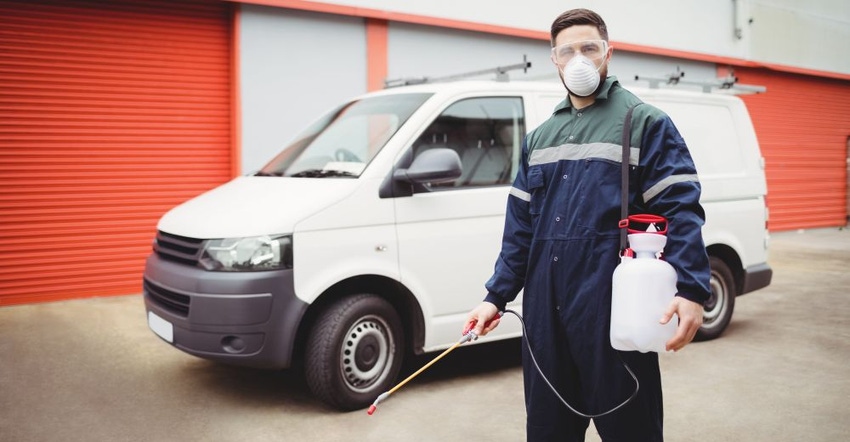Simple Steps to Keep Pests From Invading Your Self-Storage Units
If you think there’s nothing you can do to keep pests from invading your self-storage facility, guess again! There are simple steps you can take to greatly reduce the chance of bugs and rodents getting into your units.
May 1, 2020

As a self-storage operator, you know how disgusting pests can be. They aren’t only a gross to look at, they can damage your tenants’ belongings. You can also be sure that having bugs or rodents in your units will lead to upset customers, which can result in bad reviews and even a loss of business. It can be a vicious cycle.
So, you must do everything in your power to keep pests out of your facility. It may not be fast or easy, but it must be done. Following are simple steps to make your units pest-free.
Preparation
As with many goals in life, the key to pest control is preparation. Many self-storage operators will say there’s little or nothing to they can do to stop pests from finding their way into units, but that simply isn’t true. There are several things you can do to discourage activity!
First, make sure there are no trees, bushes or grass anywhere near your units. If a unit is close to a green area, insects and rodents might easily find their way in. Second, invest in proper roofing and flooring. This won’t only enhance your curb appeal, it’ll keep units protected from water, which is a big pest attractor. If you have holes or dents on the walls and doors, seal them up.
Communication
If pests invade a self-storage building, it isn’t always the fault of the facility operator. Tenants sometimes store things that attract rodents, insects and other critters. To minimize this risk, inform your customers on the proper ways to store their goods, and provide a list of forbidden items they should never store:
This obviously includes perishable food, but it also includes less obvious items like spices (stored in a kitchen spice rack), pet food, sealed cans and even bottled drinks. Mice can smell these from far away and most certainly will find their way to them.
Old, stinky or moist furniture, clothing, mattresses, pillows or similar items should also be on the list. Basically, anything that smells bad will attract pests. Advise your tenants to properly clean and dry each item before putting it in storage.
Similarly, anything that smells good is a no-no. That means perfumes, toiletries, cleaning products or anything with a strong, sweet odor. These items can bring in flies and ants.
Next, talk to customers about the proper ways to pack and store belongings. For example, advise them to avoid putting anything directly on the floor whenever possible. The alternative is to use wooden pallets, which will keep boxes and other items elevated a few inches. Items shouldn’t be thrown into the unit any which way, either. Furniture should be covered in plastic wrap, and smaller items should be in boxes and bins.
If you instruct tenants properly in what to store and how, it’ll minimize the risk of their stuff being damaged, which will preserve your good reputation. Don’t hesitate to have an open conversation. You’re helping to protect their belongings and your business!
Extermination
If your facility has become infested, don’t hesitate. While you can go the do-it-yourself route for a small job, such as a single problem unit, the best way to get rid of pests completely is to hire an exterminator. These trained, experienced professionals know exactly how to save your building and prevent future invasions.
Exterminators can easily determine what you’re dealing with and act quickly. They’ll spray for bugs inside and outside your units, set mouse and rat traps if needed, and seal up any holes that pests use to gain entry. They can also visit your facility and inspect it regularly.
While you can’t check occupied units, you can keep an eye on your vacant ones and building exteriors for signs of pests. Make daily inspections of your site. Operators with large properties might find this difficult, but it’s worth the effort. If you spot any pest activity, take care of it immediately or call in a professional before it becomes a bigger problem.
Angie Sims has been working for a professional moving company for the last 10 years. She specializes in relocation within Arizona state lines. She’s also a full-time mom of two, and an occasional blog writer, helping people find housing and self-storage units.
About the Author(s)
You May Also Like





